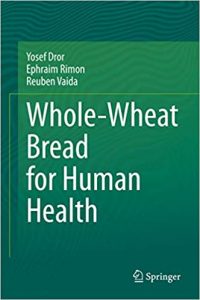This book examines the effect of whole-wheat bread on health, with evidence linking the consumption of whole-wheat products to a decrease in the relative risk of non-communicable diseases in comparison with products baked from refined flour. The authors focus on key areas such as milling and refining procedures, bakery products, and assessment of the present consumption of wheat products. They offer a detailed description of all available ingredients of wheat-kernel, with particular attention paid to the health benefits of wheat-kernel antioxidants and dietary fiber ingredients. Vitamins, glutathione, choline and betaine, carotenoids, sterols and stanols are covered, and the book concludes with a general overview of the effect of whole-wheat bread on colon activity and immune capacity. Methods of improving bread nutritional quality, and the potential for the upgrading of the nutritional qualities of whole-bread, are also discussed.
Consumption of whole-wheat in Western societies, however, has either not increased or increased very slightly. The authors intend for this book to highlight the health benefits of whole-wheat bread and the factors that contribute to these benefits.
Product details
- File Size: 17924 KB
- Print Length: 555 pages
- Publisher: Springer; 1 edition (May 22, 2020)
- Publication Date: May 22, 2020
- Language: English
- ASIN: B0893S25Z4
- Text-to-Speech:
Enabled

- Word Wise: Not Enabled
- Lending: Not Enabled












